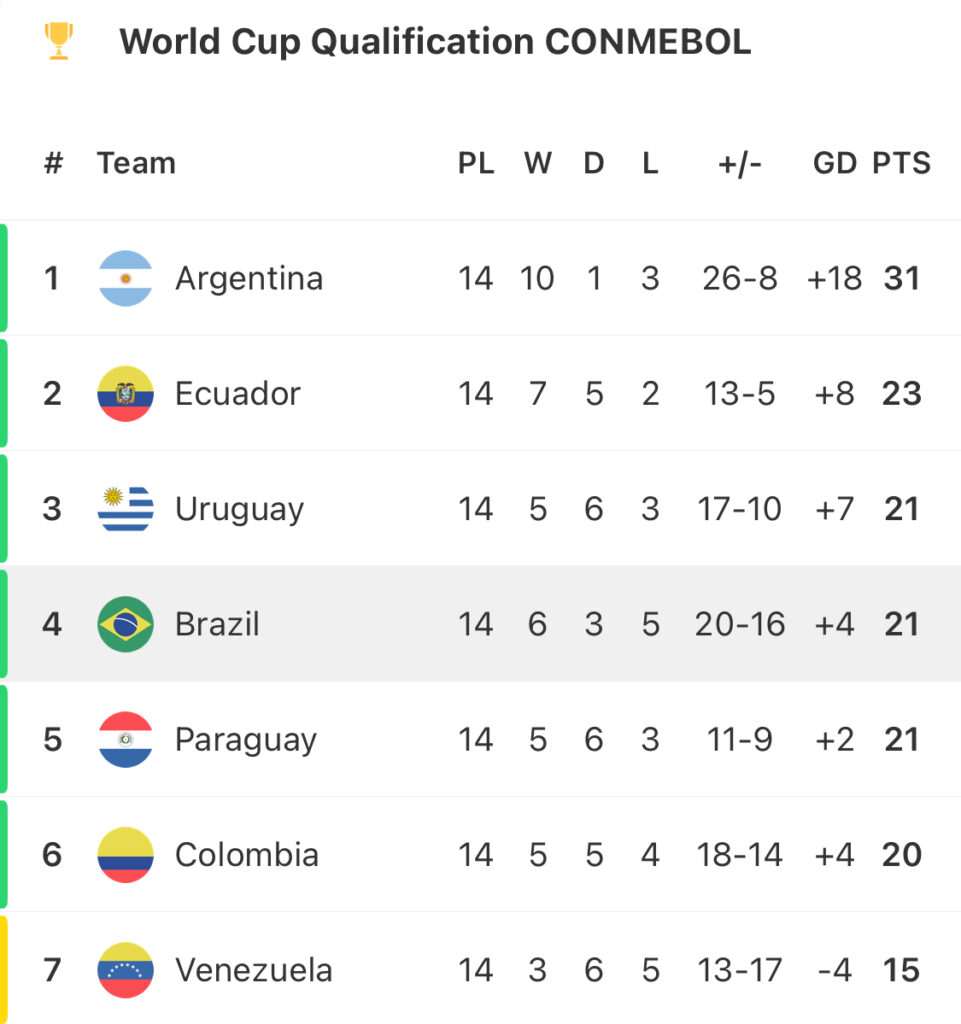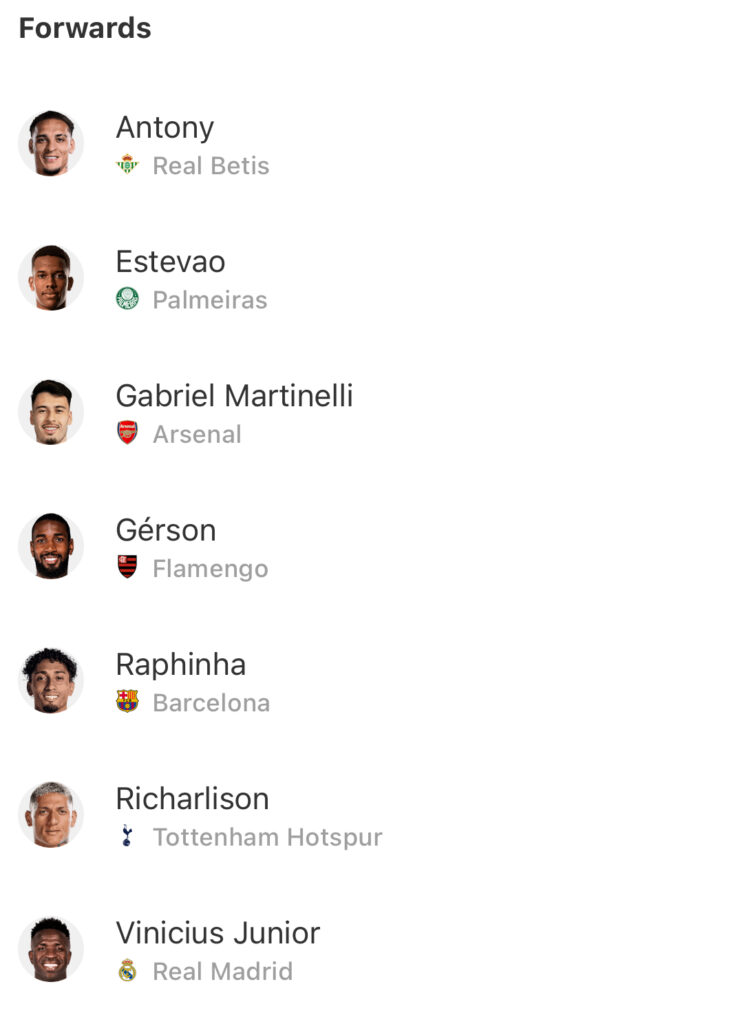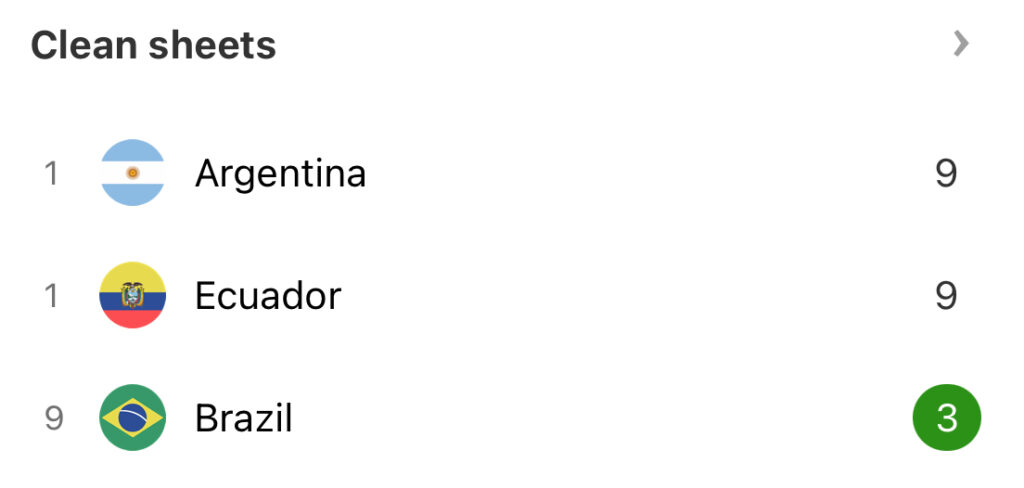After leaving Real Madrid as the most decorated head coach in the club’s history, Carlo Ancelotti will be kept busy as he has taken up a job in charge of the Brazilian men’s national team. In doing so, he has become the first foreigner to lead the Seleção, who seem in desperate need of a refresh after consistently underwhelming of late.
By Neel Shelat
By all metrics, Brazil are the most successful nation in the history of the FIFA Men’s World Cup. They are the only side to have appeared at every single edition of the tournament and have lifted the trophy a record five times. Naturally, then, their record of 76 wins in 114 matches is also the best.
Should they fail to win the global crown next year, though, they will have to endure their longest World Cup trophy drought. In fact, the Seleção have only progressed past the quarter-finals once in the last five editions – and even that semi-final ended disastrously. Naturally, pressure has been building edition after edition, and it could go further yet after the arrival of one of the most successful active coaches in world football.
Brazil’s disappointing recent record
One of the main reasons why Brazil have had to turn to a foreign head coach for the very first time is that the last few years have been among the worst in the Seleção’s history as far as results go. Although they will almost certainly seal their spot at the next World Cup, they are currently on course for their worst qualification campaign under CONMEBOL’s current format.

The first part of their campaign went particularly badly, as they lost three consecutive games for the first time since 2001 after being defeated by Uruguay, Colombia and Argentina. Although they managed to steady the ship to a decent extent thereafter, they still need a couple of results to get over the line.
Meanwhile, the Seleção suffered further disappointment in the Copa América as they were knocked out of the quarter-finals on penalties against Uruguay. In fact, they only just got to the knockouts after drawing two of their three group games against Costa Rica and Colombia.
Unsurprisingly, there has been quite a bit of turnover in the coaching department through this period of poor results. Carlo Ancelotti will be Brazil’s fifth different head coach since the start of the last World Cup – a stark contrast from the previous five who lasted a total of two decades altogether.
Can Ancelotti get the most out of an unusual squad?
As Ancelotti steps into the world of international football for the first time in his coaching career, he will face a very different challenge from what he is used to. Besides getting significantly less time to work with his players, he will now have to make squad selection decisions from a pool of players which he cannot alter.
As it happens, Brazil’s current crop of players has presented a few selection headaches that have troubled previous coaches. The toughest decisions have had to be made in the attacking department. Brazil obviously have an embarrassment of riches including superstars such as Vinícius Júnior and Raphinha, but lack an elite striker. Some recent coaches have elected to call upon domestically based talents including Flamengo’s Pedro and Botafogo’s Igor Jesus, but Ancelotti has gone striker-less in his first squad.

In this respect, the Italian tactician might just be the best man for the job. He has quite a track record of getting unconventional attacks to click, including most recently at Real Madrid. Los Blancos might have left a good deal to be desired in 2024/25 as their new-look attack led by summer signing Kylian Mbappé jarred a fair bit, but their work in the previous campaign was excellent as Ancelotti pulled off a masterstroke with Jude Bellingham as the chief central attacker in a striker-less system.
It will be quite interesting to see how Brazil set up in attack in their next matches, though it could take some chopping and changing before they find the right formula.
Defensive issues might yet cause problems
While Brazil’s attack has struggled to get going in some of their recent games, their bigger problem has definitely been on the defensive front. They are currently averaging over a goal conceded per game in their World Cup qualification campaign and have kept the joint-fewest clean sheets.

This could well remain a concern for Brazil going forward. As we have previously written, the defensive side of the game consistently was an issue for Ancelotti at Real Madrid. His side’s press was always quite disorganised, and their block was far from being the most solid too. Things got worse for them last term as the addition of Mbappé to a side that already had Vinícius meant that the team was left with two effective passengers when out of possession. Their questionable collective defending cost them dear in all matches against domestic rivals Barcelona, and they ended the season with only the fifth-lowest xG conceded in LaLiga.
Especially in international football, a solid defensive block can prove extremely useful as the ability to close down spaces largely limits most attacks that inevitably are individual-driven. The return of some currently-injured centre-backs such as Éder Militão and Gabriel could well prove helpful in the future, but Ancelotti will need to prioritise working on the team’s collective defending if they are to set themselves up for success in North America next year.
(Cover image from IMAGO)
You can follow every game in CONMEBOL World Cup Qualifying on FotMob – with deep stats, xG, and players ratings. Download the free app here.
